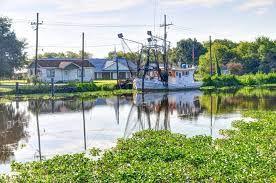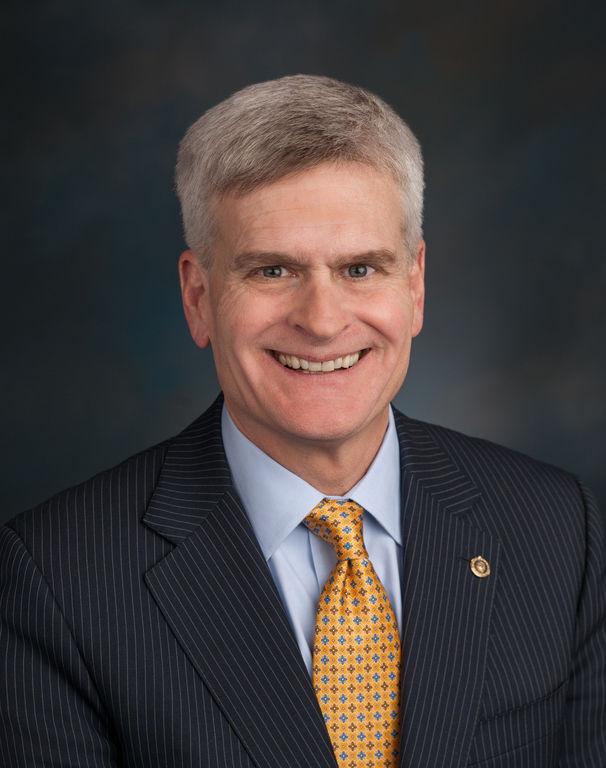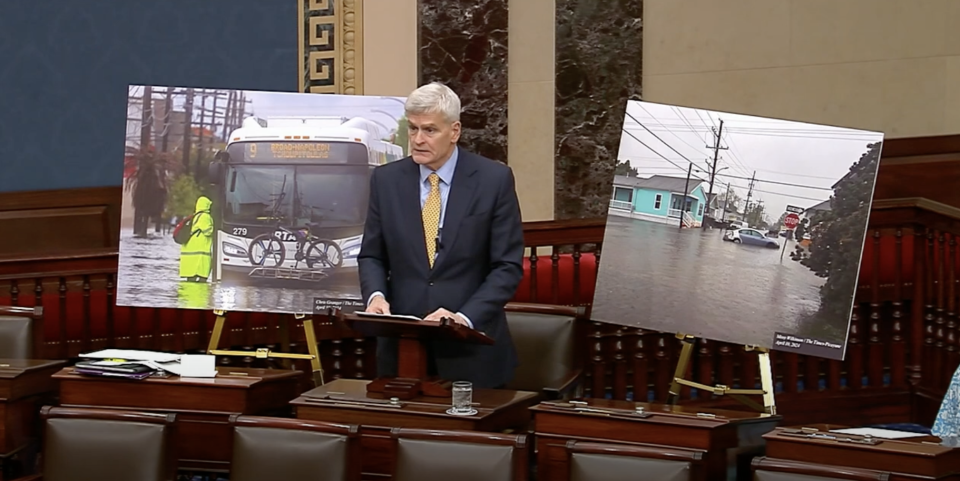
South Lafourche natives heard “explosion-like” sound on Friday, but no one yet knows what it was
September 24, 2019
Nonpartisan guide helps voters understand amendments
September 24, 2019Louisiana’s senior U.S. Senator Bill Cassidy, M.D., is pushing for coastal communities to receive a greater share of the oil royalties they help produce.
25 people gathered online for a webinar as Sen. Cassidy gave a brief overview of the Conservation of America’s Shoreline Terrain and Aquatic Life Act, as well as touched on a few other political goals he is working towards, before rushing to another meeting Thursday, September 19.
“We’re considering different bills and different legislation as regards to keep more money from the offshore oil royalty payments,” said Sen. Cassidy.
Sen. Cassidy’s bill, COASTAL Act, introduced August 1, 2019, will amend the pre-existing Gulf of Mexico Energy Security Act, GOMESA. It currently has 5 co-sponsors: Sen. Lisa Murkowski (R-AK), Sen. Dan Sullivan (R-AK), Sen. John Kennedy (R-La), Sen. Roger Wicker (R-MS), and Sen. Doug Jones (D-AL).
GOMESA was signed into law in 2006. According to the Bureau of Ocean Energy Management, it shares leasing revenues with Gulf producing states and the Land and Water Conservation Fund for coastal restoration projects. It bans oil and gas leasing within 125 miles off Florida’s Gulf coastlines as well as a central portion until 2022. It allows companies to exchange certain existing leases within moratorium areas for credits to be used in other areas.
Gomesa placed a $500 million cap on royalties paid to states each year from 2016-2055. For starters, the COASTAL Act will remove this.
Currently, Louisiana receives 37.5 percent of royalties from oil and gas operations – his bill seeks to increase this to 50 percent.
According to Chip Kline, Chairman of Louisiana’s Coastal Protection and Restoration Authority, in 2006 the Louisiana Senate dedicated GOMESA funds to coastal restoration.
“In 2005-2006 Senator Reggie Dupree passed a constitutional amendment which protects GOMESA revenues for the purposes of hurricane protection and restoration,” Kline said. “If the percentages are increased, those percentages will come into the trust fund.”
To further increase this influx of revenue, the bill proposes making leases from 2000 – 2006 eligible for paying royalties and opening up the eastern portion of the Gulf to oil operations – though Sen. Cassidy noted that he sought to protect Florida’s vital tourism.
According to Sen. Cassidy, in GOMESA’s current form, some royalties are dedicated to other states such as Montana. His bill seeks keep more of the money for Gulf coast states like Louisiana.
“I am all about preferred maintenance on national parks,” said Sen. Cassidy. “I am not about taking more money away from offshore royalties, because frankly I want that money to go to our state for coastal restoration.”
The eastern portion of the Gulf of Mexico is currently under a moratorium due to expire soon. According to Sen. Cassidy, the House has been seeking to extend this moratorium indefinitely. He has been blocking these attempts, and says he hopes this will allow for negotiations.
“I’ve been able to block that so far, and will continue to do so,” Sen. Cassidy said. “That’s our point of leverage.”
The oil field isn’t the only benefactor of Sen. Cassidy’s current political activities. SEN. Cassidy mentioned wind farms in northeastern states, Massachusetts and Rhode Island to be exact, where Louisiana companies are providing support.
“Wind energy, they want it – God bless em – they can have it,” he began. “I like the fact that somebody named Thibodaux, on a Louisiana boat, is helping them put those windmills up.”
Since Louisiana has been able to harness royalties from our energy production methods for coastal uses, Sen. Cassidy said, he is suggesting that northeastern states investing in wind energy partake in revenue sharing arrangements and devote these dollars to coastal restoration for their states.
“Forty percent of the population lives next to a coastline we should do something to protect coastal states from rising sea levels and we think this is a nice way to get at that,” said Sen. Cassidy.








